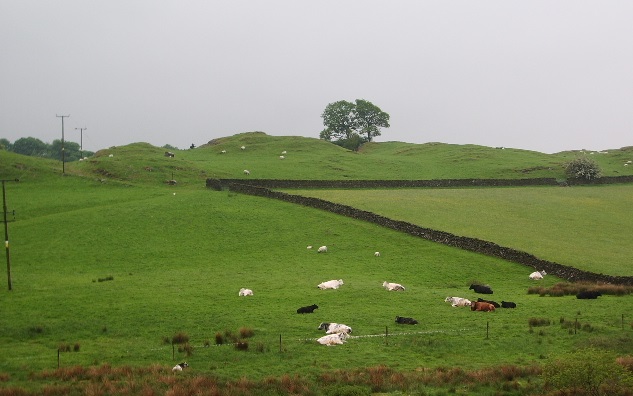
The Food Standards Agency has investigated three incidents in which meat from cattle has entered the food chain without the animals being tested for BSE.
All of the incidents predate changes to the BSE testing rules that came in on 1 March 2013. Before then it was mandatory for all cattle slaughtered for human consumption and aged over 72 months to have a negative BSE test result before they entered the food supply. Since 1 March this has no longer been a requirement.
The health risk from eating the meat associated with any of these incidents is very low as it is extremely unlikely that any of the cattle involved had BSE. In addition, the parts of the animals most likely to contain BSE, the specified risk material, had been removed and destroyed.
Under the BSE regulations, as a precaution, the animal slaughtered immediately before the untested cattle and the two immediately after it are also stopped from entering the food supply.
In the first incident, a cow aged 72 months and 3 days was slaughtered on 23 July 2012 at J A Jewitt (Meat) Ltd, a combined abattoir and cutting plant in Co. Durham. The missed test was discovered in September during routine cross-checks of slaughter and BSE testing data.
The carcass slaughtered immediately before the untested animal was rejected for other reasons and was disposed of. The untested carcass and two associated carcasses were dispatched as part of a consignment of 52 sides to a meat processor. All the sides were then processed and mixed with other consignments of beef and dispatched to eight different food businesses as both fresh and frozen product. Much of the product was sold on and consumed. However, 21 cases of frozen meat associated with the untested animal were traced, detained and destroyed.
In the second incident, a cow aged 77 months and 18 days was slaughtered on 11 September 2012 at Simply Halal (Banham), a combined abattoir and cutting plant in Norfolk. The missed test was discovered in November during routine cross-checks of slaughter and BSE testing data.
Meat from the untested carcass and three associated carcasses was sold to five separate food businesses. The local authorities for the food businesses that received the meat confirmed that it had all had been sold, in chilled form, and most likely consumed.
In the third incident, the animal, aged 72 months and 193 days, was slaughtered on 29 November 2012, at Anglo Dutch Meats (Charing), a combined abattoir and cutting plant in Kent. A batch of 70 animals was processed that day. Of these, 41 required testing. Forty animals were tested and all found to be negative. The one remaining untested carcass went into the food supply.
The missed test was discovered in January following routine cross-checks of slaughter and BSE testing data. The untested carcass, together with the three associated carcasses, was sold to Alec Jarrett Ltd, a combined slaughterhouse and cutting plant in Bristol as part of a consignment of 108 sides. The meat was then cut at Alec Jarrett alongside a second consignment from Anglo Dutch Meats. Some of the cut meat was sold as chilled product to a number of businesses. The remaining frozen meat was voluntarily detained at the cold store and subsequently sent for disposal by Alec Jarrett Ltd. The breach was not the responsibility of Alec Jarrett Ltd.
Goats test positive for scrapie
Two goats that tested positive for scrapie entered the food supply following an error at the testing laboratory.
Scrapie is a disease found in sheep and goats and is similar to BSE. However, there is no known risk to humans from eating meat from scrapie infected animals. In addition, the parts of the animal most likely to contain infectivity were removed before entering the human food chain.
The two animals were slaughtered as part of a batch of 26 goats on 21 January 2013 at Melton Meat Ltd, a slaughterhouse in Leicestershire. This was part of the Compulsory Scrapie Flocks Scheme, which allows undiagnosed animals from flocks affected by scrapie to be monitored for the disease at slaughter.
The slaughterhouse took the required samples from all the goats slaughtered that day and received the test results from LGC Runcorn, an approved testing laboratory, on 22 January. On 23 January, the results identified two positive samples and those carcasses were destroyed. The remaining carcasses were immediately released for sale. However, on 25 January LGC notified the FSA that an error had occurred at the laboratory and the wrong carcasses were identified as positive. The two positive carcasses were sold direct to two private customers from Melton Meat Ltd’s on site shop. These were cash sales and it was not possible to identify the customers and retrieve the meat.
LGC has carried out their its internal investigation regarding the reasons for the error at its laboratory. Melton Meat Ltd was not responsible for the positive animals entering the food chain.
